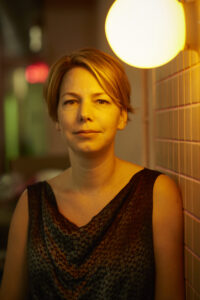
This talk will explore same-sex desire among Holocaust victims in ghettos and concentration camps, the homophobic reaction of fellow prisoners, and the ongoing erasure of queer Jewish survivors from memory.
Sexuality was for Holocaust victims a crucial coping mechanism, an important resource, and a source of pleasure. However, it has hardly been researched in the Jewish history of the Holocaust, and has at best been used to provoke curiosity or titillation.
Anna Hájková discusses how queer sexuality was perceived by the protagonists and observers, how it came to be marked as deviant, and how it came to be one of the most stigmatised and erased aspects of the genocide. Finally, she asks how we can use erased queer voices to write a more inclusive history of the Holocaust.
Main image: Anna Hájková with a lesbian Holocaust survivor
Dr Anna Hájková

Anna is associate professor of history at the University of Warwick. Her first book on Theresienstadt ghetto is forthcoming with Oxford University Press. Her second book will explore queer desire in the Holocaust. In addition to her academic work, she is a queer history activist and public intellectual. She tweets at @ankahajkova.
Image of Anna Hájková courtesy of Seed9.
LGBT History Month
For many years LGBTQI+ histories have been left untold or suppressed. LGBT History Month exists to promote equality and diversity through discovering and sharing diverse stories of often marginalised communities.
This programme is supported by a grant from The Association of Jewish Refugees.
